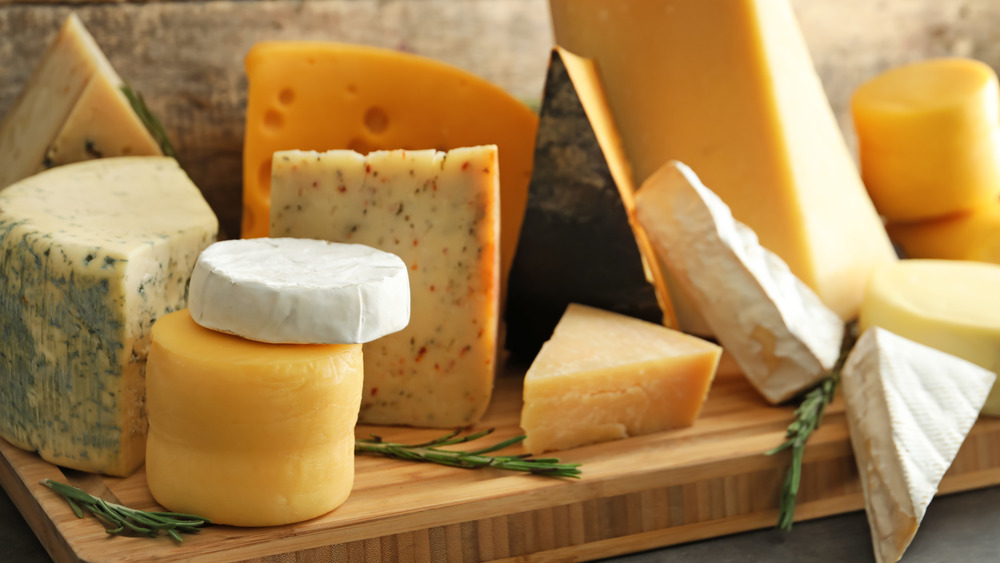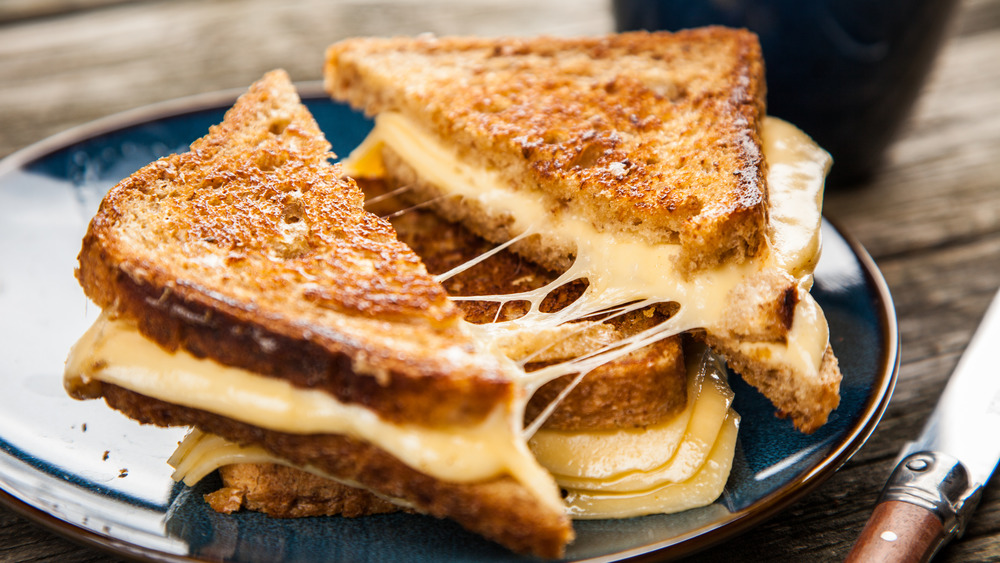Can You Eat Cheese While Pregnant?
Pregnancy comes with so many rules that it can be hard to keep up, especially when it comes to what you can and can't eat. While staying away from shellfish and lunch meats is kind of a given, what many first-time mothers might not know is that you should also avoid certain cheeses. According to the New York Times, the softer the cheese, the more risky it is for pregnant women and their babies. And the Centers for Disease Control and Prevention (CDC) guidelines say the same thing, pointing out that soft cheeses that are made with unpasteurized milk are almost 160 times more likely to cause a listeria infection than soft cheeses that are made with pasteurized milk. In other words, it's time to say goodbye to the likes of feta cheese, blue cheese, ricotta, and Camembert (among others) for a little while — nine months to be exact.
Hard cheeses are considered safe for pregnant women to eat
But it's not all bad news. As René Ficek, a dietitian and the lead nutrition expert at Seattle Sutton's Healthy Eating told The List, "Calcium, phosphorus, and magnesium are critically important nutrients for a little one's growing skeleton." She continued, "Cheese and other dairy products are chock full of these nutrients. It is important to get at least three servings per day to ensure adequate amounts needed for both mom and baby."
Basically, hard cheeses are totally fine. "As you go from a mozzarella with high moisture to something like a cheddar or a Monterey Jack, the risk is starting to go down," Dr. Dennis D'Amico, Ph.D., a professor of food microbiology at the University of Connecticut told the New York Times. This includes cheddar cheese, too, so you can fire up the grill and eat grilled cheese sandwiches until you (and your baby's) hearts are content.

